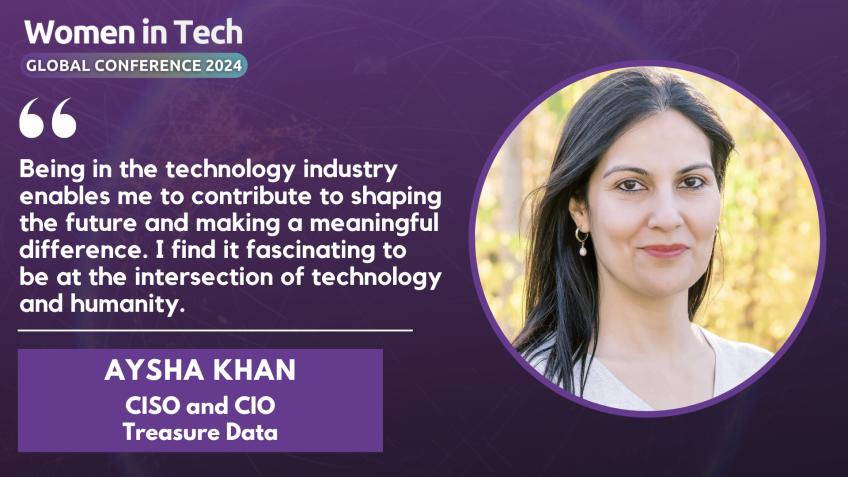How to become a successful leader of engineers by Madeline Carson
Successful Leadership in Engineering: Lessons Learned with Madelyn Carson
Leadership in tech is challenging, regardless of whether you're a novice or an expert in the industry. Today, we have Madelyn Carson, seasoned Engineering Director at Metalab, who will be sharing insights from her journey into engineering leadership. The aim? To lend a helping hand to those navigating their leadership responsibilities in this rapidly changing tech climate.
Who is Madelyn Carson?
A west coast Canadian-born woman, Madelyn is a testament to the prowess of authentic Canadian niceness and creativity. With a background in Electrical Engineering, she made her mark in a predominantly male industry, disproving the ingrained misconception of gender imbalance in tech. Over the past 15 years, Madelyn's tech journey spans from university internship programming to her current role as an Engineering Director at Metalab. Passionate about sharing her experiences as a woman in tech, Madelyn hopes that her insights inspire other women in the industry to do the same.
Engineering Leadership at Metalab
Madelyn's leadership journey has predominantly taken place at Metalab where she rose through the ranks starting as a developer, to becoming an engineering lead, and now the engineering director. In her valuable four-year tenure as director, she has worked with and mentored professionals worldwide.
Metalab, a digital product accelerator, transforms founders' ideas into functional high-quality applications within a span of a few months. With a diverse international crew comprising research, product, and engineering teams, they have launched highly acclaimed products into the market like Slack, Notarize, and Calvin Klein's e-commerce redesign.
Tackling Leadership in Challenging Times
The unprecedented global events stemming from the COVID-19 pandemic, the great resignation wave, polarizing world politics, and looming global recession have necessitated a shift in management tactics. More than ever, leaders need to balance technical output with empathy, care, and kindness towards their teams who are navigating their professional and personal lives in a discordant world.
Building A Successful Leadership Foundation
Trust is at the center of successful leadership and a necessary foundation for fostering healthy professional relationships. Combining trust with other leadership practices can help create a highly functioning team. Here are a few lessons learned from Madelyn's leadership journey:
- Get to know your team beyond their skills. Understanding your team members as individuals aids in serving them better.
- Listen, take action, follow up. Listening involves helping your team members find solutions and not jumping in to solve all problems yourself.
- Be kind, not nice. Having open and honest conversations even when they're difficult ensures effective leadership.
- Help when needed. Use your leadership position to give the necessary support when required.
- Own your mistakes. Admitting to your mistakes is a sign of growth, and fostering a culture of learning from mistakes results in higher quality output and professional development.
Healthy and authentic coaching follows when a strong foundation of trust is combined with direct communication. Addressing issues as they arise instead of ignoring them decreases the likelihood of projects falling behind or team members quitting.
Leadership Success Litmus Test
A litmus test can help you take stock of your leadership progress. It covers various aspects such as revealing risks or mistakes early, providing regular feedback, empowering others, ensuring high-quality work delivery and maintaining a healthy work-life balance.
Learning from Mistakes in Leadership
Madelyn recounts her own leadership journey by highlighting the importance of having a strong support network, recognizing the value of her work, being direct with feedback, and balancing between differentity various aspects of work. Everyone's leadership journey is riddled with challenges to overcome, and hers was no exception.
In closing, businesses and industries have significant roles to play in fostering excellent leadership. By sharing our experiences and lessons in leadership, we can develop better leaders who will contribute positively to the tech industry's transformative future tradition.
Video Transcription
Awesome. I think it's time. So we'll jump right in. Um Yeah, thank you all for coming. And uh we'll start by introducing myself. I'm Madeline, uh I'm Madelyn Carson and we're going to dig into what it means to be a successful leader of engineers.And I'll share my stories of my personal journey as I grew into engineering leadership. If you're a new or an experienced leader, this is meant to help you navigate your leadership responsibilities in relation to that new climate that we're experiencing and especially in our tech industry.
So who am I? And why should I attempt to give you any advice? Uh Well, no journey goes smoothly, let alone one where you have responsibility for other complex multifaceted humans. I'll do my very best over the next 20 minutes to share some of my hard earned lessons to save yourself some energy or maybe even validate some of the great things that you're doing already a little info about me that might help provide some context into everything else that I'll be sharing.
Uh Firstly, I was born in the west coast of BC and I can confirm that Canadians really do have their own special brand of authenticity and niceness. Uh I grew up as a woman in a patriarchal world which taught me to be creative in a world that isn't designed for me. The data is clear, women are underrepresented in medical studies, city planning, research and tech to get what we need in this world, we often need to find creative solutions to make things work for us. And I took my electrical engineering degree at UNI maybe it's a cliche, but I really did excel at Science and Math. And without really knowing why I enrolled in engineering, I actually had no idea about the gender gap in the program until I went to my first class where I was the only woman out of 40 men. I had naively assumed that it would just be a 5050 split. I definitely had feelings of being out of place and being different, which has its own cognitive load and struggles to work through. But you keep going. I worked in tech for the last 15 years from my university internship program.
I was lucky enough to get some programming jobs where I learned that I could excel, but that I wasn't going to be given the benefit of the doubt and had to work on my skills and believe in myself enough to make up for that. A moment of honesty when I was preparing for this and reflecting on my career so far and my journey into leadership. A lot of challenges came up with the, with being a woman in a largely male industry, I started to weave this into my notes because it was part of my lived experiences. But then I got scared. What if this sounds like complaining? What if this is off putting for people to hear? I had to sit back and think on why it was that I was afraid of being judged for talking about feminist experiences in a conference called Woman Tech. And why I wanted to tone it down to be more palatable. I've decided not to shy away from talking about my real experiences as a woman in tech. And although this might be different from your own, I appreciate you all being part of this discussion with me. A large part of my experience has been uh a large part of my leadership experience has been here at Metal Lab. They were the ones to support my growth even when I wasn't sure I was ready for it. I started out as a developer.
I was then promoted to engineering lead and then engineering director, which is the position that I've held now for over four years. So it's worthwhile sharing a little context into the work that I've done at Metal Lab to put my learnings and advice into perspective. So, although we're based in the west coast of Canada, we follow talent all over the world. So I've mentored and worked with folks globally. We're a digital product accelerator who takes founders ideas and with our teams of research, product and engineering. In just a handful of months, we'll launch a gorgeous highly functioning app into market for real users. We do this again and again, we launch repeat and learn. We're a true partner for our clients and we've put hundreds of products into market and delighted billions of users.
We've shipped from many of our friends out there on the internet. Probably many that you've heard of and used before. Uh A few of my favorite examples include Slack. We got slack off the ground and developed their differentiated user experience. That's so ubiquitous today, notarize, we were the entire product design and tech team to launch a beta V one and V two into market for this now unicorn products company. Uh And this one is near and dear to my heart because I am so proud to have made the very first commit on their back end code base. And Calvin Klein, uh I personally had so much fun working collaboratively with design to bring this beautiful e-commerce redesign to life. So let's jump into the tech team in particular since that's where I work. Uh And that's why we're all here. So I'm pretty proud of our Metalab engineering team that I've helped grow another honesty moment. I struggle to properly acknowledge my achievements and let alone celebrate them. But this is my first lesson learned. If you're genuine in your pride and your outcomes. It isn't bragging.
There are some pretty darn cool growth and retention stats that are the result of a great deal of work on myself and the team and I believe made possible by strong and caring leadership. Uh My favorite highlight here is that 45% of our engineering leadership are women and that includes our CTO and me. All right, let's take a quick level set for where the world is. Right now. We've had an unprecedented worldwide pandemic. We've just seen the great resignation which particularly affected the tech industry. World politics are heated and divisive. Uh And we might be moving towards a global recession. The world is changing and with it, the humans who live in it and work with us, the same old management tactics that we grew up with aren't going to cut it. I have different expectations and needs for my employer than I used to. And so do the folks on my team, the folks on my team are learning how to balance burnout, working on their mental health, growing their skills in this new tech talent market, delivering on work to clients who are also trying to navigate growing their own organizations in this new world.
Tensions are high, things are tough and we need that whole balance. We need more care, kindness and technical strength and output than ever before. All right, now that we've established that things are not business as usual. How do you ensure that you're successful in leadership with your team having highly functioning and happy, healthy teams and individuals doesn't just happen by accident. And if it does, it certainly won't stay that way for long. There's work required from you and your teams, you can't just go rushing into that new coaching relationship or team leadership and start making asks and changes. It's not going to go well, you need to build that right foundation for these relationships and how do we do that?
It starts with trust. If you think back to any good manager that you've had, there'll be trust there, the ones who could ask you favors and you'd be happy to help out because you knew that they would have your back. I've experienced this for many leaders, but I feel so lucky to work with our CTO Jonah. When she asks me to work on a project that I'm initially not keen on, I will work on it regardless. I have trust that if she's making that ask of me, it's beneficial for my growth is needed for the organization. If things get tough, I have her as a safe space to talk things through without repercussions. And if things get really tough, I have her for help and support, I know that she'll jump right in. I have this trust because of the relationship that we've built since she started, she shared context into her life experiences and current role. And in return, she's asked me questions and listens to understand what's important to me, including my strengths and my struggles. Trust doesn't just happen. It's earned through actions and time. Every interaction that you have is casting a vote towards the type of relationship that you want to have with your team. So make them count. But with taking these actions, you can't help but build a better relationship with your team.
Um I'm actually really curious if any of these surprise you or if there are things that you found to be particularly effective. Um You can feel free to post in the chat if you like or just think to yourself. I personally have found number five taking ownership over your mistakes is the one that's felt most uncomfortable to me, but it's the one that resonates with me most in my own leaders. So let's jump in first getting to know your team beyond the code by really getting to know your own team as humans. You'll better understand how they bring up issues to you and how you can more effectively give them feedback when I have coaching sessions with my devs, I don't let them get away with saying things are good. This is not useful information to me and it's not how folks grow themselves. I always start by asking two questions about their past week. What are you the most proud of and what has been the most frustrating thing in your past week. This really pushes them to be more introspective about their work, to showcase some cool things that they've done and to not let frustrations silently fester without us working it through by truly caring about your folks.
You'll learn when they need a break or if they just need that strong push and held to a high standard to get it done and then you celebrate those wins together. Next, listen, take action and follow up in those coaching conversations that we have talked about in that last slide. Make sure you really leave space to let them talk. We listen, not just to the words that they say, but all of their cues. The most important part here is to help your dev dig deeper into that root of the challenge and what can and should be done about it, supporting your folks through their challenges. Doesn't mean that you need to take all the action and solve all the problems that your team brings to you. The hardest part in leadership is going to be learning how to offer support without just jumping in and actively doing something yourself to fix their problem. But by consistently doing these steps, you're signaling that it's worth it to bring up issues and questions to you. Number three, be kind not nice. This means being willing to have those tough real conversations. I have a few guidelines that I follow to make sure that I'm collating and sharing useful feedback. First, I listen to understand why the situation is happening and I get information from others involved as well to ensure that I have that full picture. This one's tough.
It's not what you say. It is what they hear to help with this. Whenever I give feedback, I'll give it in two ways, I'll start by talking to them over a video call or in person if I can. Um But I'll also send over a written summary that I've made. This is more clear and therefore more kind and this is the best one. It's not just constructive feedback that helps folks grow, but positive feedback, positive feedback is not only just plain nice to talk about but is genuinely useful. I'm guilty of this for myself. I don't treat the things that I do well as important. Instead, I focus on the things that I need to change. But if you do focus on the specific things that you do well, that bring value, you'll keep doing them and you'll even improve on them, which adds to that value. Number four, roll up your sleeves when they need help. Remembering that as you move into leadership, you spend less time in the work. So ensuring that you have a good foundation of the work before transitioning into that leadership. And then when you're there doing what you can to get insight into the day to day work will really help us out.
I'll give a particular example of when it's useful to jump in and how on a particular project recently, I realized that we were missing milestones mapped out for the project and not having this info was causing a lot of stress that I was hearing from our lead. Although the lead was well experienced enough to do this task, they needed a little extra support and a push. So on one of our coaching calls, one day when I heard this, this challenge again, I grabbed an old milestone docs, a template. I cleared it out and together we did a screen share and started filling it in. It was a super busy day for me that day, but I was able to make 30 minutes for us to make that start. And that's the hardest part. The lead was able to finish it up after I dropped off the call in this situation. It didn't mean that I took over and did all that work for them and it didn't even mean a large chunk out of my day. But it did mean offering that hands on support based on my own experience and my knowledge of that project situation and that made all the difference. All right, let's have fun. Number five, taking ownership over your mistakes. To be completely honest. I've personally felt this challenging as a woman when I feel like I've spent so much time in my career proving that I'm smart enough, I'm capable enough and admitting a mistake at times has felt like proving them right.
But taking ownership of your mistakes is really powerful, done properly. It can gain a lot of trust and respect. When you have an environment of learning from your, from your mistakes and sharing these learnings, you'll actually have a higher quality work output and you'll get to promote people faster because they're making more measurable growth. When you have these trusting relationships, you're able to have these useful real coaching conversations. It means that you hear about problems right away when they're still easier to solve problems that are ignored, lead to projects falling behind interpersonal issues becoming irreparable.
And the absolute worst part about leadership is people ultimately quitting. Having these open honest conversations right away is just plain easier and makes your job a lot faster. All of these are real examples of conversations I've had with my team over the past few months because of these trusting solid relationships. I found there are two different ways that these often come up. The folks that I've known for a long time will often slack me. Or if we hop into a call, they'll jump in right away into their frustrations or challenges. But other folks, when we sit down for our coaching calls, I need to really listen to know where to gently prod a little bit more to get all this information that I need. So it's really good as a leader to know how to get all that information that you're going to need and how to support folks in both types of these situations, whether they're ones that they're willing to bring up their problems directly or more indirectly and they need that little push.
All right, a litmus test. Have you built that foundation of trust? And are you having these honest and useful coaching conversations? I'll give you the checklist that I use and honestly I get really proud when I can tick off these boxes. Uh a bonus, random learning, take moments of pride for yourself or you can because these are some good signs that you're doing some darn good leadership from my experience. These are signals that your team is healthy and highly functioning. You can't just measure the output because it isn't a good long term indicator if you have good output. But these items aren't being checked off, you won't have good output for long. It'll taper off at best or at worst, your team will crash and burn. So first you hear about risks or mistakes early because they're going to happen, you need to know about it. And if regular feedback is happening, there are always ways for everyone to improve. If you're not talking about it, it doesn't mean that it doesn't exist. It just means that you're not working on it. And then if you've made it so that you aren't actually necessary in the day to day, if you've grown others and given them those opportunities to replace yourself in many small areas, it frees up time for you and it, it gives them those growth opportunities to, to do even better in their career.
It's a win win. And then true. If teams are delivering on that high quality work, no matter how good they are, that superstar developer is not going to be as effective long term as that well oiled machine of a highly functioning team and then the team and yourself are living healthy, balanced lives. This means that hobbies and vacations aren't burnout necessities. If teams and projects are running smoothly, there is time for these things. If they aren't, it's a pretty good litmus that it's not an effective team and more leadership is needed and that's where you can jump in and help.
All right, let me practice that piece that I find so tough and own up to my own learnings. So here's a highlight reel of my own mistakes as a leader. You spend so much of your time giving support to those around you, but you need support yourself. You need someone to bounce ideas off, someone to give you direction. When you're stuck, someone to pump you up, when things get tough and someone to tell you like it is when you need to change something, this may not all be from one person. So build yourself, build yourself a strong support network. I now have about 3 to 4 people in my life to provide this for me. Make sure you know how to feel good about your own value in your work. Remember those team stats of my own engineering team that I shared at the beginning and the super cool work that teams have done at metal lab when I'm feeling imposter syndrome or I'm not even sure what I've accomplished in the week. I look back to that and consider how my leadership has contributed. And I think this is the the most hard earned lesson myself, being more direct about feedback, especially earlier on in my leadership journey, I would be ready to be clear. But when faced with that team member, who I cared about so much, I would default to wanting to soften the blow. And this would result in me often being misunderstood and that team member wasn't able to make those necessary changes and that growth that we needed from them.
And that wasn't fair and something that I still struggle with every week that I'm working on. So post in the chat. If you have any ideas for this, how, how do you balance all the things in the week that are important to do for your job with that logistical constraint of a reasonable workday and a balanced life, still struggling through that one. But I think many people do. All right. Thank you so much for coming on that journey with me. I really appreciate it. All right. Thank you again. That was, that was really kind of you to, to follow through. I, I'll talk to you all later. I'll connect with you soon. Thanks.





